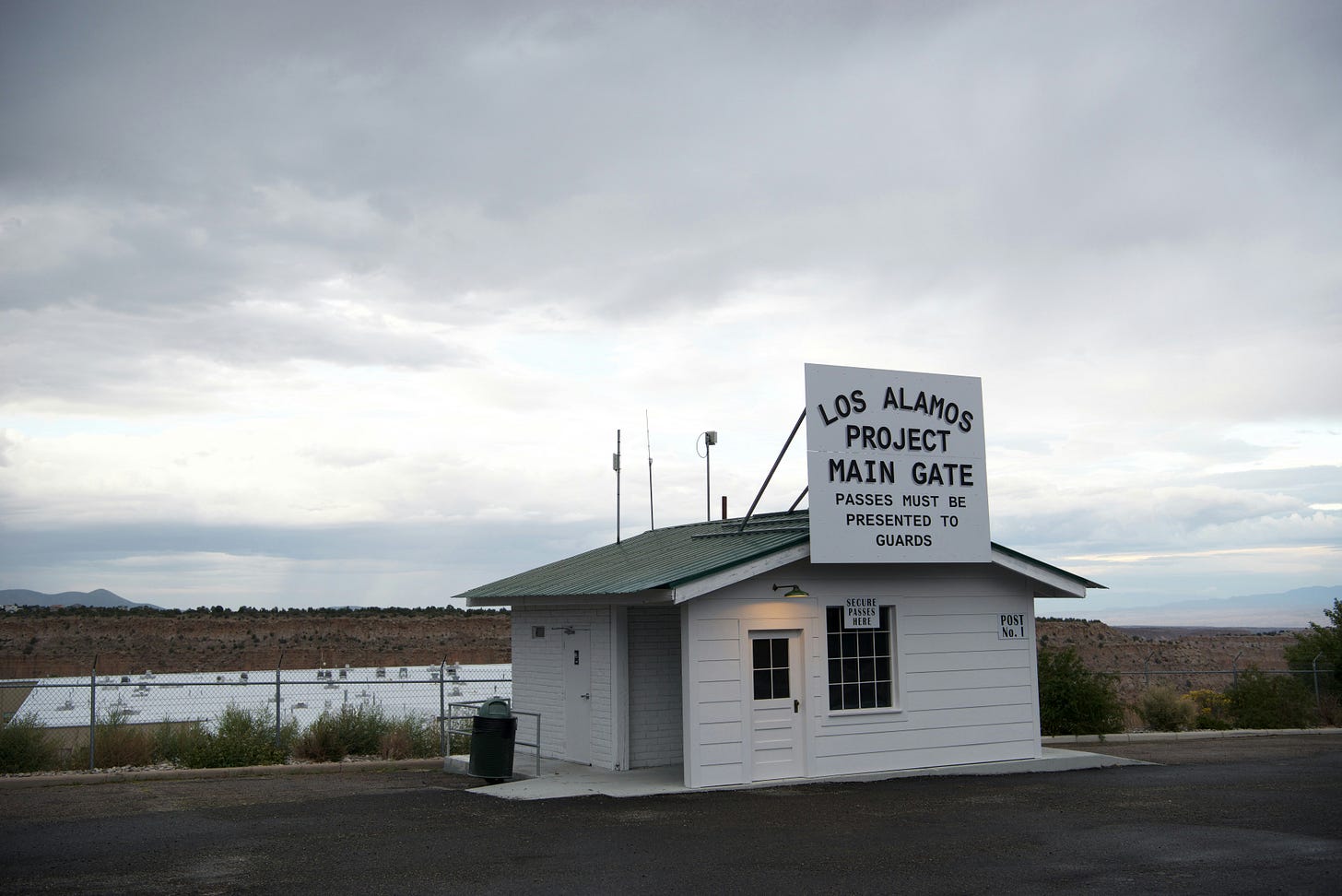Talent Recruitment and Retention
J. Robert Oppenheimer's Leadership Genius Behind the Manhattan Project
With all the talk of Christopher Nolan’s film Oppenheimer and its performance this awards season, I was reminded of reading Kai Bird and Marin Sherman’s fantastic biography of J. Robert Oppenheimer, “American Prometheus.” It’s a fascinating history of the Manhattan Project and its leader, the brilliant physicist whose leadership extended far beyond his scientific expertise. Oppenheimer's unique ability to recruit and retain top scientific talent was instrumental in the project's success, cementing his legacy as a mastermind of talent management.

Early Recruitment Strategies
Even before the official establishment of Los Alamos as the project site, Oppenheimer had begun his relentless pursuit of the brightest minds in physics. His approach was characterized by what he termed "absolutely unscrupulous recruiting," a directive that underscored his determination to assemble an unparalleled team.
One notable example of this strategy was the recruitment of Robert Bacher, an MIT administrator and experimental physicist. Despite Bacher's initial reluctance, Oppenheimer's persistent lobbying and emphasis on the project's significance eventually persuaded him to join in June 1943 as the director of the experimental physics division.
Creating a Collaborative Environment
Oppenheimer's leadership extended beyond mere recruitment; he was deeply invested in fostering a sense of community and collaboration among his team members. Recognizing that many of the scientists were uprooting their lives to join the project, he went to great lengths to accommodate their personal circumstances. This commitment to his team's welfare was exemplified in the recruitment of Richard Feynman, a brilliant twenty-four-year-old physicist. When Feynman expressed concern about his wife Arline's health, Oppenheimer personally located a tuberculosis sanatorium in Albuquerque, enabling Feynman to work at Los Alamos while visiting his wife on weekends. This gesture not only secured Feynman's participation but also demonstrated Oppenheimer's genuine care for his team.
Maintaining Morale and Productivity
The secrecy and isolation of Los Alamos posed unique challenges to team morale and productivity. Oppenheimer's leadership style, however, was instrumental in keeping the team engaged and motivated. He cultivated an atmosphere of intellectual curiosity and collaboration, encouraging open discussion and debate among the scientists. Regular seminars and informal gatherings provided opportunities for the team to share ideas and progress, fostering a sense of collective purpose. Oppenheimer's personal charisma and enthusiasm were also infectious, inspiring his team to push the boundaries of their knowledge and creativity.
Handling Talent with Care and Respect
Oppenheimer's talent management extended beyond the realm of science, as evidenced by his recruitment of Dorothy McKibbin. McKibbin, a well-connected member of Santa Fe society, was recruited to run a discreet office that served as the "gateway" to Los Alamos. Oppenheimer recognized her unique skills and the vital role she could play in welcoming and orienting new recruits. McKibbin was immediately drawn to Oppenheimer's magnetism and the significance of the project, despite not knowing the specifics of her job initially. This ability to identify and leverage diverse talents was a hallmark of Oppenheimer's leadership.
Overcoming Challenges and Objections
Recruiting for a highly secretive and controversial project like the Manhattan Project was not without its challenges. Many scientists had reservations about working under military oversight and the potential implications of their research. Oppenheimer's persuasive skills and personal assurances were crucial in overcoming these objections. He worked tirelessly to ensure that the scientific integrity and autonomy of the project were maintained, even in the face of military pressures. His ability to navigate these complex dynamics and maintain the trust of his team was a testament to his exceptional leadership.
Building a Legacy of Scientific Excellence
The impact of Oppenheimer's recruitment strategies extends far beyond the Manhattan Project itself. The team he assembled at Los Alamos represented some of the most brilliant minds in theoretical physics, many of whom went on to make groundbreaking contributions to science in the post-war era. The collaborative spirit and intellectual fervor that Oppenheimer fostered at Los Alamos became a model for scientific research, influencing the way in which future projects were organized and conducted.
Conclusion
J. Robert Oppenheimer's role in the Manhattan Project was not limited to his scientific brilliance; his true genius lay in his ability to recruit, inspire, and lead a team of exceptional individuals. Through a combination of strategic persistence, personal care, and a deep understanding of human dynamics, Oppenheimer assembled a group of scientists whose collective efforts changed the course of history. His legacy as a scientific leader and talent mastermind continues to resonate, reminding us of the power of vision, collaboration, and the ability to bring out the best in others.


